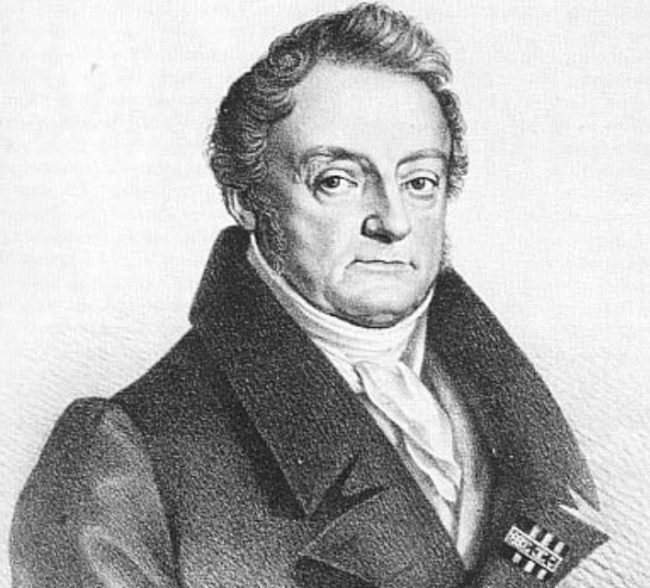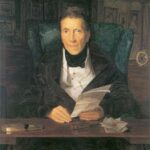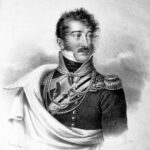Beethoven was seventeen when he met Count Waldstein in Bonn and already had admirers in the city, but no one came close to the influential, generous and musically sophisticated Waldstein. This article reveals how the Count influenced the fate of Beethoven.
A short biography of Count Waldstein
Count Ferdinand Ernst Gabriel von Waldstein was born in Vienna in 1762 and died in the same city in 1823. He was a German nobleman, member of the Bohemian Waldstein House, a diplomat and military man. His name remains known today not because of the above-mentioned titles and positions, but because of his patronage in arts, first and foremost the support of young Ludwig van Beethoven.
In 1787 he had joined the Order of Teutonic Knights and moved to Bonn in 1788, answering the call of the Elector, Archduke Maximilian Francis, who was Grand Master of the Order. He, at the age of twenty-six, had been knighted and became a prominent member of the local high society, a close confidant to the Elector. He had worked as a diplomat until the French invasion of Bonn, when the Elector fled to Vienna. He felt a high calling to defeat the French and tried his best to raise an army and coalition against Napoleon. He invested all his fortunes, but his army the Waldstein Light Infantry never engaged in battle and finally was dissolved.
The next coming years he spent in London, partly hiding from creditors. In 1809 he returned to Vienna and his Bohemian estates, later marrying a wealthy Countess. Both in his military endeavors and investments his luck finally run out. After spending decades in high positions, serving ten years in the British army, being the exchequer to the Emperor, he died impoverished in Vienna.
Beethoven and Waldstein
The Count was a great patron of arts himself being a capable pianist and occasional composer. Waldstein, upon arriving in Bonn, was actively looking for talents to support and easily found the one Bonn was most excited about: Beethoven. The young musician was seventeen at the time and already had admirers in the city, but no one came close to the influential, generous and musically sophisticated Waldstein.
The Count helped Beethoven whenever he could. He slipped sums to him telling the boy it was coming from the Elector and petitioned the Court to increase Ludwig’s salary. He encouraged him in his compositions and his improvisations.
In 1791 Waldstein was to host an event at the court theater and commissioned Beethoven to (ghost) write orchestral dances for the night. The nobility would attend in medieval German dresses and watch a ballet performance. The music was sold as a composition of the Count and became known as the Ritterballet or Knight’s Ballet.
The Elector of Bonn, being a cosmopolitan, always encouraged young artists to go out and see the world, get a perspective and then return home to serve the community. We have every right to believe that Waldstein was among the firsts to promote Ludwig for such a tour (in his case to be paid by the Elector) and organize – on his way home from London – the meeting with Haydn. Haydn was impressed with the young man, both his compositions and his live piano play and agreed to take him in Vienna as a pupil. The Elector had to be delighted by the idea of having a Ludwig van Beethoven as Kapellmeister (head of music) once again, just as his grandfather had been with the exact same name and position. According to the plan, after some polish in Vienna young Ludwig was to return to Bonn…something that never came to be.
The most memorable part from Count Waldstein’s life are those few lines he wrote as a farewell in Beethoven’s Stammbuch (family-book). Like a true prophecy it came to pass.
“Dear Beethoven!
You are now going to Vienna in fulfillment of your long-frustrated wishes. Mozart’s genius still mourns and is weeping over the death of its pupil. In the inexhaustible Haydn, it had found refuge but no occupation; through him it wishes to form a union with another. Through uninterrupted diligence you shall receive Mozart’s spirit from Haydn’s hands.
Your true friend,
Waldstein”
The guiding hand of the Count remained with Beethoven even in Vienna, as upon arrival his first contacts were the relatives and friends of Waldstein. Sadly, there is no written evidence about the two meeting in Vienna in the coming years, but they must have met many times!
Beethoven repaid the old debt to his mentor when he dedicated his Grande Sonate for piano in C major (1803) to Waldstein, who at the time was serving in the British army. This work was inspired by his new path and his new French Érard piano that was much stronger and louder than the Viennese ones. The Waldstein piano sonata became a defining work of his Second Period, a work of a Genius.












